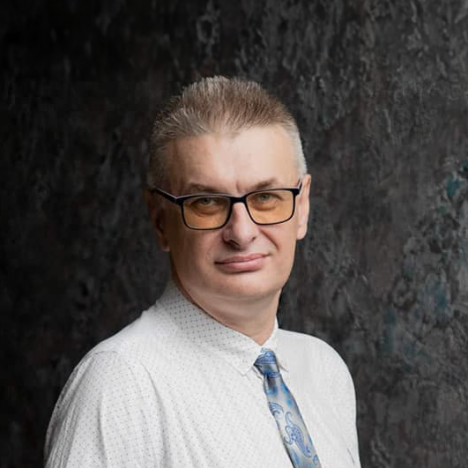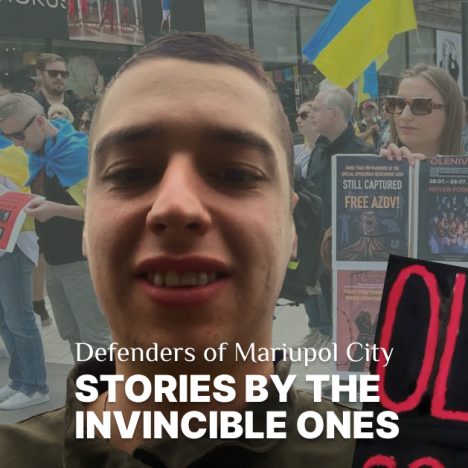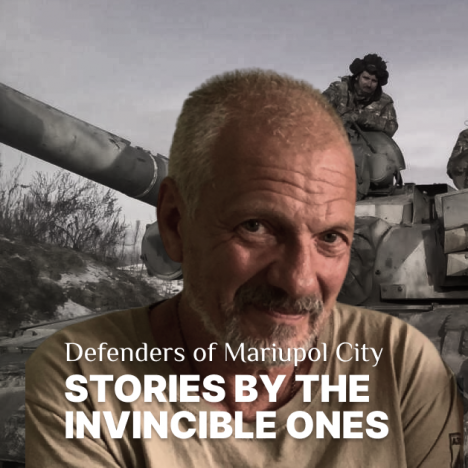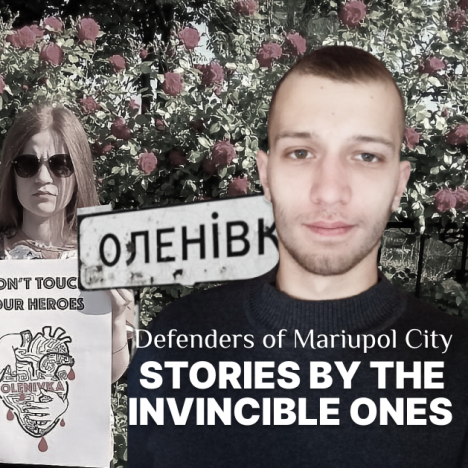Uzhhorod. Zakarpattia. I am heading towards a row of waste containers located at the end of our street to discard waste. Usually, there is always someone going through trash or is lurking nearby in anticipation of something useful: bottles, cardboard or even better – a cast-iron bathtub that is disposed of due to flat renovation.
I have heard on many occasions as the Roma people (for it is prevailingly them) say a word or two to one another or to anyone coming close to the containers. Most of them do this in the Roma language, Hungarian, Ukrainian, the Zakarpattia dialect or sometimes Russian.
Normally, when I tell someone who is not from Zakarpattia about the linguistically gifted people scavenging waste containers, they are amazed, since everyone knows all the squabbles surrounding the topic of the absence of desire to learn or to speak Ukrainian. And here we’ve got people who speak numerous languages…
Such a mix of multilingualism and panhandling is certainly typical only or Zakarpattia. I have used this phenomenon as an ugly example (but example nonetheless) of the fact that it is possible to know and speak a few languages every day.
Let’s take a look at a more positive example, though. Pardon my indelicacy, but let’s consider the example of myself. I have been speaking Hungarian in my everyday life since childhood. My parents understood that I had to pick it up from the youngest age possible, since the language is quite difficult and I would have a tough time learning it as an adult.
(By the way, this mistake of “first teaching kids to speak Ukrainian, and only then Hungarian) is quite typical for people living in Zakarpattia. However, at the age of 5-7 years a kid is not motivated to learn this difficult language in modern context).

So, I visited the “Russian” group in the kindergarten. I was then sent to a Ukrainian school. At home I spoke Hungarian with my nearest and dearest, and also the Zakarpattia dialect of Ukrainian.
Multinational courtyards were the norm for Uzhhorod
I picked up Slovak from TV and while communicating with Slovak construction workers that often visited us. I learned to read in Hungarian almost on my own by reading a Hungarian humor magazine.
I spoke all three languages with kids from around the block, since our block was a multinational place, which was typical for the Uzhhorod of the 80s. For example, lots of Jews living there spoke Hungarian and Russian. Also, kids from mixed marriages also spoke 2-3 languages.
Back then it seemed natural to me, although I now understand that this was not the case in other parts of the country.
You could pose a logical question here – why are you writing in Russian then?
Well, this very text has been originally written in Ukrainian (this is not a translation from Russian, I swear, I’ve got witnesses).
I will tell you a secret – when I was a teenager I started writing poetry in Hungarian, Ukrainian and Russian during one of the fits of my hormonal storms. I would choose the language through some kind of an instinct according to my current mood. I still have my notes from those times. Frankly, the Hungarian poems were the finest among all others.
My mom was a subscriber of the one of the leading magazines of that time “Foreign literature” (I read almost all of its issues from 1986 till 2004, just as many translated books). As paradoxical as it may seem, I fell under the influence of the finest works of the foreign literature when I was starting to write first prose works in Russian.
When the process of reading and writing goes on for decades, it can hardly be changed. Well, it can, but it is extremely difficult to abandon the experience and to give up on everything you have so far written. All the more so, since I was writing for myself. I would read some of the passages to my friends. Back in the 1990s it was simply unreal to have your works published, especially for someone coming from Uzhhorod. Even self-publish books in Uzhhorod (I was part of this process) were published in Russian.
Why being a polyglot is important
When I became a father, I wanted my kids to also speak Hungarian. Especially considering the fact that their grandparents also speak it. I wanted them to know the language in order to celebrate the “Hungarian” Christmas, so that they could watch cartoons in Hungarian, and listen to Hungarian music. I wanted them to better understand Zakarpattia, to facilitate their task of learning another foreign language, to expand their horizons.
Sure, one cannot predict if your kids are going to benefit from speaking this or another foreign language
Now I speak Hungarian worse than in the 1990s, when I was constantly hanging out with local Hungarians. Those people have emigrated. I have not watched Hungarian TV in a long time, as I don’t have a TV-set at home.
My point is that the everyday usage of several languages is a good, interesting and useful thing. This practice expands one’s horizons, making you not only “more European”, but also more of a citizen of Uzhhorod. Having read the history of our town you will understand that throughout all periods of its existence, its educated citizens spoke several languages that were quite unlike.
Just read the stories of “The Uzhhorod we’ve lost” and you will see that the protagonists of those stories spoke several languages throughout decades.
Don’t get me wrong, I am not claiming that knowing only one language is a tragedy. Nor do I insist on switching to the language of your interlocutor or that citizens of Ukraine have the right to not speak Ukrainian.
What I am trying to say is that speaking several languages in your everyday communication is a big advantage. That it is typical for Uzhhorod or even the entire region of Zakarpattia. This is an integral feature of not only this region, but the entire Ukraine.
I think that the continuation of this tradition or this language knack would do nor harm. Our aptitude and openness to languages is one of the values that Europe (as a social and cultural territory) and the EU (as a multinational and socio-political community) rest upon.
This value is not affected by the fact that polyglots go through the trash.
Bandy Sholtes, writer, specially for InfoPost.Media
Photo by Victoria Yakimenko
Ez a szöveg magyarul is elérhető: Ukránul gondolkodni, magyarul beszélni, oroszul írni. Soltész Bandi rovata
Ця публікація доступна також українською: Думати українською, говорити угорською, писати російською
*This text is the author’s column, which means it represents, first of all, the views of the author of the material, which may not coincide with the views of the InfoPost. We publish author’s columns, first and foremost, for the sake of discussion of important topics, since we believe in the power of public dialogue. Should you want to write an author’s column for us, email us at editor.infopost@gmail.com





